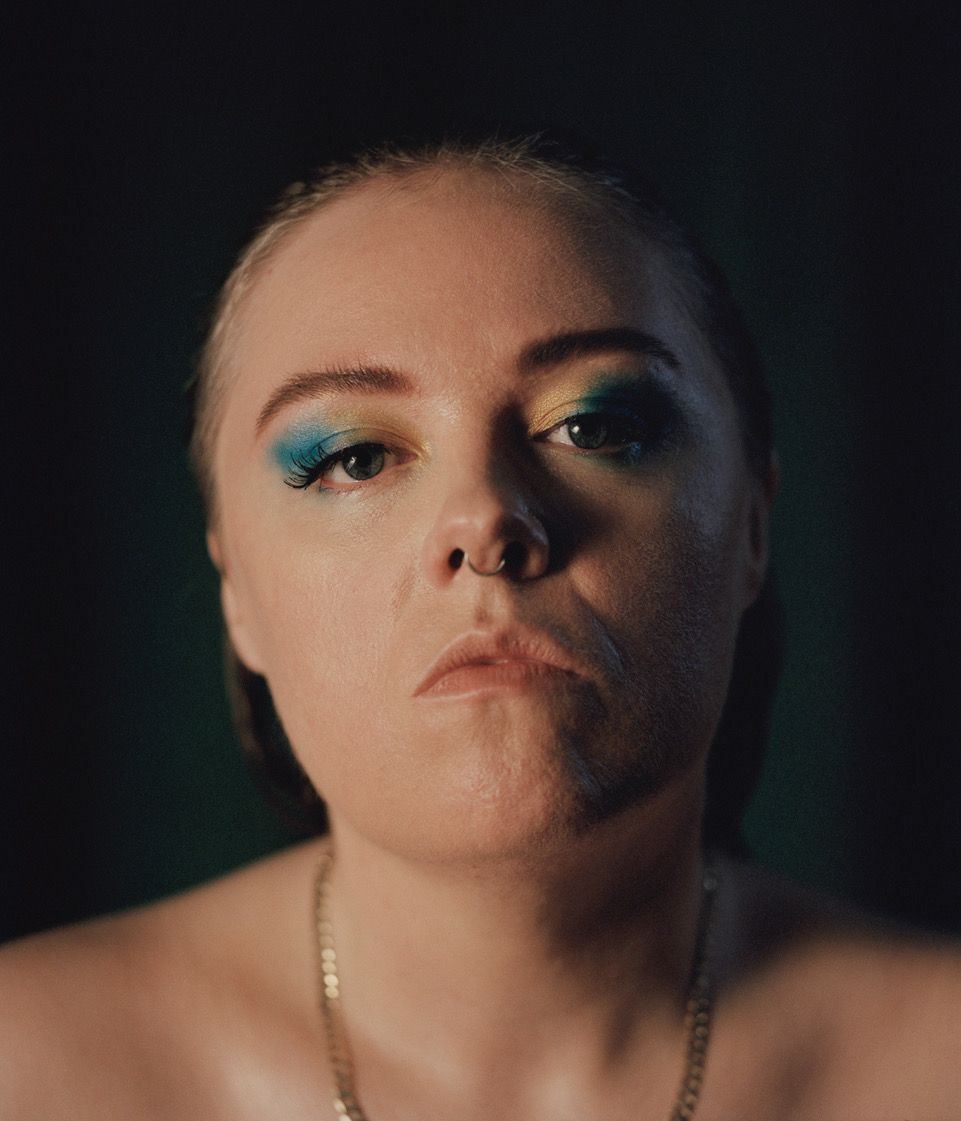Name: Emma Jean Thackray
Nationality: British
Occupation: Composer, producer, multi-instrumentalist, singer, bandleader, DJ
Current release: Emma Jean Thackray's new album Weirdo has been anounced for April 25th 2025 via Brownswood. First single "Wanna Die" is out now.
Topic I rarely get to talk about: I love football and listening to football chants. It’s quite amazing how a crowd of mostly middle aged men, many of whom you would imagine don’t sing in their day-to-day lives and likely find expressing emotion quite difficult, can have a beer and feel able to sing songs together for 90 minutes. I find the idea of churches / temples fascinating and the space they hold for people to connect to something other than themselves, to sing songs for something they hold greater than themselves. I feel like football stadiums hold that place in society now.
If you enjoyed this interview with Emma-Jean Thackray and would like to find out more about her and her work, visit her official webstore. She is also on Instagram, Facebook, Soundcloud, and bandcamp.
For a deeper dive, read our earlier Emma-Jean Thackray interview.
When did you first consciously start getting interested in singing? What was your first performance as a singer on stage or in the studio and what was the experience like?
I sang as a small child. I was always walking around singing little songs that I made up, and my parents would get very annoyed, constantly telling me to be quiet.
I actually don’t remember my first time singing on stage or in the studio; I feel like it’s just something I’ve always done.
If you're also playing other instruments, how does the expressive potential of these compare to your own voice?
When I play other instruments, I’m also trying to make them ‘sing’. I like to be as melodic as possible, even when playing chordal instruments or percussion. The closest to singing for me is the trumpet, and I can make the trumpet sound like singing, just without words.
In my track ‘Let Me Sleep’ on my new album Weirdo, there’s a moment where I’m soloing on trumpet and doubling it with my voice - they’re two parts of the same whole for me.
What were some of the main challenges in your development as a singer/vocalist? Which practices, exercises, or teachers were most helpful in reaching your goals – were there also “harmful” ones?
I think the hardest thing to have control of is your intonation. I think a lot of singers can focus too much on the ‘emotional’ side of performance (in pop / rock etc) and forget that you should have complete control of your voice as an instrument.
I think it’s great to transcribe other singers and match them exactly - every syllable, every phrase, and blend with them perfectly.
What are the things you hear in a voice when listening to a vocalist? What moves you in the voices of other singers?
I’m listening for their technique, their intonation, how they’re using vibrato, how they’re leaning into different syllables for different effects. I’m listening to their mouth / tongue position and how that changes the sound. I’m listening to all the minutia of what goes into a performance; that’s how you convey emotion and capture the listener.
What moves me is a singer who has total control of their voice, and therefore total control of the listener.
How would you describe the physical sensation of singing? [Where do you feel the voice, do you have a visual sensation/representation, is there a sense of release or tension etc …]
There are certain moments where you might feel tension when singing, intentionally, to get a certain sort of sound, but mostly it should feel very free and relaxed. Emotionally it definitely feels freeing and cathartic.
Sometimes at the end of the day I might feel a tightness in my body and not know immediately why I feel so tense, but then I’ll realise “oh I haven’t sang today”. It’s a full body experience for me.
We have a speaking voice and a singing voice. Do these feel like they are natural extensions of each other, ends on a spectrum or different in kind?
They’re exactly the same thing. It’s air moving across our vocal chords at varying speeds to create different pitches, for varying lengths of time, enunciated by our mouths.
Singing is just a bit more drawn out and dramatic.
How do you see the relationship between harmony, rhythm and melody? Do you feel that honing your sense of rhythm and groove has an effect on your singing skills?
Technically harmony and rhythm are the same thing if you drill into the science of it. Different rhythms rubbing against each other create resonances of different pitches. So really they’re all the same thing on a physical level.
In my EP Um Yang I have different time signatures playing at the same time, and that creates a droning effect throughout.
Thinking about groove is essential. I think in jazz music we’re much more attuned to ‘time’ than other musics. I think about it a lot. I try to sing like a drummer and drum like a singer, if that makes sense.
What are the potentials and limits of your voice? How much of your vocal performance can and do you want to control?
I want to be able to control every single aspect; that’s how you master your voice. I have limits, though. I can sing very low for a woman, but higher pitches are difficult for me. My range is technically ‘contralto’, not that I hold too much weight to labels.
No matter how much work I do or how well I warm up, there are some notes I will never be able to reach because of my anatomy. We all have something like that, but our bodies are all unique, so therefore are our voices.
As a singer, it is possible to whisper at the audience, scream at the audience, reveal deep secrets or confront them with uncomfortable truths. Tell me about the sense of freedom that singing allows you to express yourself and how you perceive and build the relation with the audience.
I’d be terrified to scream and damage my voice, but I do like to play with dynamics to tell a story.
I’m definitely revealing deep secrets and singing about uncomfortable truths. I think that’s why my music resonates with people, especially the new album Weirdo, because I’m being so honest.
I’m singing lyrics that most people would only write in their diaries and not say out loud.
I'd love to know more about the vocal performances for Weirdo, please, and the qualities of your voice that you wanted to bring to the fore.
My music draws upon lots of different genres, and my vocal performances are doing that, too. There’s more controlled, intricate, jazz like moments (eg “Let Me Sleep”), as well as more full, soulful moments (eg “Save Me”), and there’s a lot of grunge / rock in there too, so my voice has to have a bit more power and grit in those moments (“Weirdo” / “Stay”).
There’s also moments of being a bit more playful and being influenced by P-funk ("Black Hole").
When you're writing song lyrics, do you sense or see a connection between your voice and the text? Does it need to feel and sound “good” or “right” to sing certain words? What's your perspective in this regard of singing someone else's songs versus your own?
I’ve done a lot of studying / transcribing of other singers and their songs, mostly Donny Hathaway. I’ve never released someone else’s song, though.
I definitely need the song to resonate with me fully, for it to feel truthful. My songs are 100% truthful to me, and that might not be the case for someone else’s song. But I’ll never say never.
Strain is a particularly serious issue for many vocalists. How do you take care of your voice? Are the recipes or techniques to get a damaged voice back in shape?
The only thing that works is rest and hydration.
Vocal strain is awful, and I can feel it after a run of a few shows, because even if you’re using in-ear-monitors and soundcheck fastidiously, somehow the band always get louder for the actual show and never realise how difficult that is for singers.
Drink lots of fluids and stop talking / singing. Sleep. Rest is key.
Emma Jean Thackray Interview Image by Alex Waespi
How has technology, such as autotune or effect processing, impacted singing? Has it been a concrete influence on your own approach?
I do not and categorically will not use autotune on my voice. EVER.
It makes me really angry to hear it, and unfortunately you can hear it on 90% of music today. Even with technically good singers, because it’s become so automatic for producers / mixing engineers to put autotune on the voice as standard. I produce and mix my own music, and I would never want my voice to sound so plastic / inhuman.
If I ever worked with a sound engineer for my live shows that put autotune on my voice they would be immediately fired. At best, autotune is a way for producers to make things sound more slick and under control. At worst, it’s a way for terrible singers to cheat. I’d ban it if I could …
I love playing around with delays, though.
For recording engineers, the human voice remains a tricky element to capture. What are some of the favourite recordings of your own voice so far and what makes voices sound great on record and in a live setting?
I’m really happy with the vocal recording across the whole of the Weirdo album. I wanted to capture my vocals as organically as possible, so I’m focussing on the performance, rather than thinking of how to tweak or hone things in post-production.
I used a large-diaphragm tube microphone for some drive and saturation, and not much else, just a bit of compression at the end of the chain.
For me, you should do as little to the vocals as possible; let your performance shine. That’s when vocals sound the best, in my opinion.
Motherese may have been the origin of music, and singing is possibly the earliest form of musical expression, and culture in general. How connected is the human voice to your own sense of wellbeing, your creativity, and society as a whole?
My voice is me, I am my voice. Your relationship to your voice is different to that of other instruments, because it’s literally your body, not an object to pick up and manipulate. The tension you hold in your body effects how you play other instruments, for sure, but everything is amplified when singing.
My wellbeing is so connected to my voice, not just in the way of how my body changes how I sing, but also the other way around. If I don’t sing for too long, my body doesn’t feel like a nice place to be. I need the release and catharsis of connecting to my body and expressing myself.





